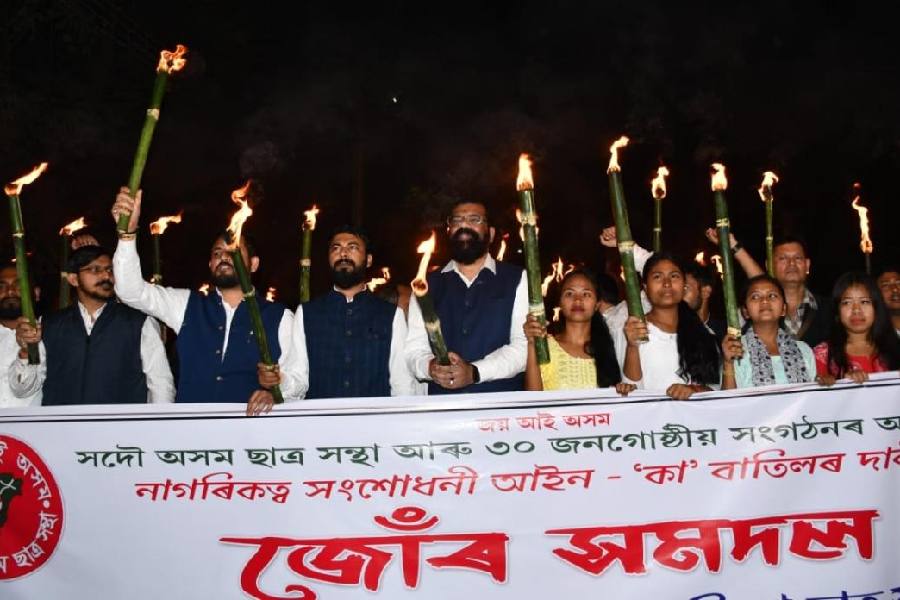The All Assam Students’ Union (AASU) on Tuesday moved the Supreme Court seeking a stay on the CAA rules notified by the Centre on Monday and also took out torch rallies across the state.
Chief minister Himanta Biswa Sarma on Tuesday asserted that he would be the “first” to "step down" if a single person other than those who had applied for inclusion in the National Register of Citizens (NRC) acquires citizenship under the amended citizenship law.
AASU president Utpal Sarma told The Telegraph that they had filed an affidavit in the apex court on Tuesday seeking a stay on the CAA rules because anything “emerging out of an unconstitutional piece of legislation is also unconstitutional” and also because the CAA was violative of the 1985 Assam Accord, a pact born out of the six-year-long anti-foreigners movement led by AASU.
“We were and are against the CAA. We condemn the CAA implementation because it is a threat to the culture and identity of the Assamese people,” Utpal Sarma said.
In Guwahati, the rally was taken out from Swahid Nyas — the AASU headquarters — around 6.30pm but was stopped by the police at Latasil Field, about half a kilometre away. After raising slogans for “repressing” the democratic protest, the AASU members returned to their headquarters.
The 16-party Opposition United Forum in Assam had also called a daylong Sarbatmak Hartal (strike) on Tuesday.
The state police on Tuesday morning served a notice to the leaders of the 16 parties ordering them and their respective organisations to withdraw the strike and "co-operate in maintaining peace in the state, failing which legal action will be taken against you in your personal capacity".
The notice was issued by the deputy commissioner (crime), Guwahati Police Commisionerate.
The strike, however, did not impact or disrupt life. There were no reports of untoward incidents.
Congress Legislature Party leader Debabrata Saikia has also moved the apex court seeking a stay on the Citizenship (Amendment) Rules, 2024, during the pendency of the instant writ petition, which flagged “apprehension” that CAA’s implementation “will result in a fresh onslaught on the fundamental right of freedom of speech of citizens of India and the muzzling of dissent”.











